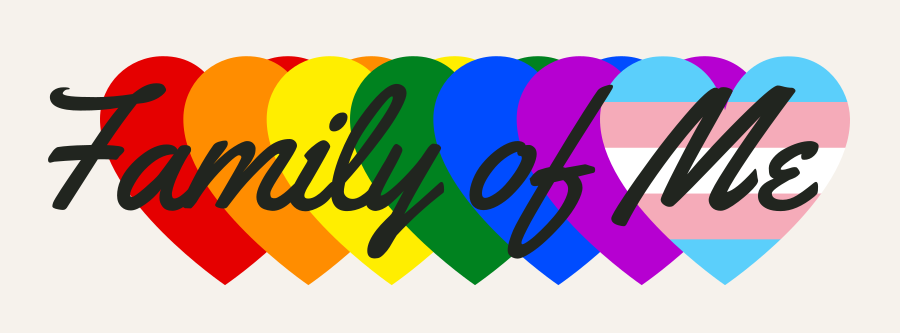Lark (20s me): Hey Mom.
Mom (Present me): Hello Lark. What’s on your mind?
Lark: I… Well…
Mom (smiles): Feels a little strange, doesn’t it? Coming to me about stuff other than your gender, I mean.
Lark: Heh, yeah. No worries, I’m definitely a girl — You convinced me!
Mom: In a way, you convinced yourself.
Lark (blushing): I… I suppose so. Still, something you mentioned back then has been stuck in my head ever since.
Mom: What’s that?
Lark: When we were talking about how you eventually met your partner, I said I had to do things the hard way, but you insisted otherwise.
Mom: I said you do things your way, and I said that was valid.
Lark: You also said there were reasons for that and we could talk about them another time.
Mom: So let me guess — now’s the time?
Lark: If you don’t mind.
Mom (smiling): It’s what we’re all here for. To be honest, I don’t have a definitive answer for you, but I have a pretty persuasive story. The heart of that story is neurodiversity.
Lark: Nobody used that word back in my day.
Mom: No they didn’t. You lacked a lot of the language that I use now — It just wasn’t available back then. It probably would have made our lives a little easier… Regardless, we’re neurodiverse. I’m still working out the details, but there seems to be a streak of demand avoidance that runs through the entirety of our lives.
Lark: Demand avoidance?
Mom: We instinctively reject demands on our time and energy. If someone tells us to do something and we’re not convinced it’s in our interest, we avoid doing it.
Lark: I mean, I try to be careful with taking on tasks, but sometimes I don’t have a choice.
Mom: And when you don’t have a choice, what happens? It takes a tremendous effort to bring yourself to do whatever it is. Even trying is exhausting because you have to scale Anxiety Mountain to engage with the task, and it’s a constant drain on your emotional energy while you’re working on it.
Lark: Yeah… I guess that’s true. It’s really hard to bring myself to do things I don’t want to do.
Mom: Indeed. So we have this demand avoidant streak, and we grew up with parents who were convinced that conforming to societal expectations was key to our survival. Our demand avoidance was something that had to be stamped out of us.
Lark (withdrawn): Yes, I remember.
Mom: It’s pretty hard to forget. We were constantly beaten down by comments like “why can’t you just do it” or manipulative devaluing of things we found rewarding or threats to send us away to military school where we would be “straightened out.” Anything to crush us into the obedient, pliable shape that our parents thought we should be.
Lark: And wouldn’t you know it, the things that we found valuable and rewarding never seemed to be priorities for them.
Mom: Funny that.
Lark: So we had parents that wanted us to conform to their will, but a certain demand avoidance that kept us from doing it. We had so many fights…
Mom: Yes, but fighting was ultimately pointless, because they had all the power and never budged an inch. I think we also learned not to trust them. We had to hide parts of ourselves away so they couldn’t be ridiculed or used as leverage to make us do their bidding. We tried our best to dismiss their constant criticism of ourselves or the things that we found rewarding.
Lark: So you’re saying we couldn’t trust their guidance either.
Mom: Exactly. We couldn’t trust something just because they told us it was a certain way — unless we came to understand it ourselves, we didn’t believe it. And they called that doing things “the hard way.”
Lark: Huh.
(Lark sits in silence for a few moments as she reflects on her past.)
Lark: You know, it’s been decades since we’ve had to follow our parents’ rules. Wouldn’t it have been easier for us if we’d learned to trust other people along the way?
Mom: Maybe, but was that a realistic option for us? We’ve been burned in other contexts too. We’ve taken people on trust and had it blow up in our face more than a couple times, and every time that happens, our brain swoops in to say “remember, this is why we don’t trust other people.” And our experience with our parents makes our brain very convincing.
Lark: So… We just don’t trust other people on faith.
Mom: No we don’t. It’s a way to keep ourselves safe, and we’ve needed that for a long time.
Lark (disappointed): It feels lonely, not being able to trust anyone.
Mom: We’ve managed. Honestly, it’s changing now, albeit slowly. Now that we have the capacity to form intimate bonds, we’re learning to trust again too. It’s going to be a process, but we’ll get there.
Lark: I hope so.
